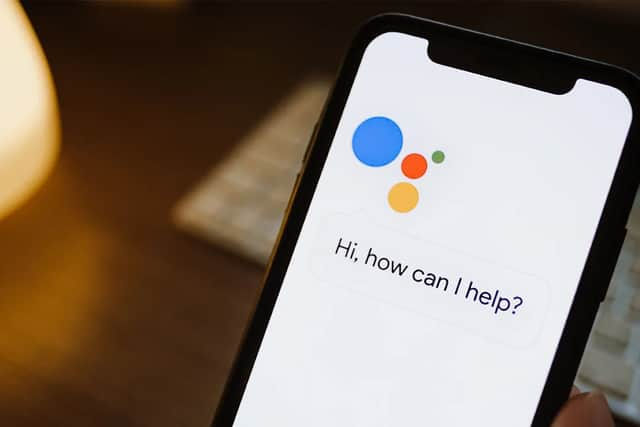Google Assistant: will Alexa and Nest app and smart speakers see generative AI voice?
and live on Freeview channel 276
On the face of it, the inclusion of generative AI to make our smart speakers and devices more communicative sounds like a no-brainer.
Putting chatbots like Bard and OpenAI's ChatGPT to work in personal assistants and smart speakers could open them up to immeasurable amounts of more information and make the devices more personable and capable of engaging in more natural and context-aware conversations with users.
Advertisement
Hide AdAdvertisement
Hide AdBut so far, none of the big players have taken that step (though Amazon is exploring how to reboot Alexa with AI), and asking your Alexa anything outside of its usual parameters still conjures the usual response: "Sorry, I don't know that one."
But now, Google is reportedly planning to "supercharge" its virtual personal assistant software with the addition of new generative AI elements. That's according to Axios, which reported that an internal email sent to staff revealed that work on the new Google Assistant had started with the mobile version of the product.
What does AI mean for personal assistants?


By using generative AI, personal assistants and smart speakers can understand and respond to a wider range of user queries, handle more complex conversations and provide more personalised and relevant information.
Instead of relying solely on predefined responses or scripted interactions, they can generate dynamic responses based on the context of the conversation and the user's preferences.
Advertisement
Hide AdAdvertisement
Hide AdIt seems unlikely at this stage that Google "supercharging" its assistant would mean simply integrating a large language model-based (LLM) chatbot, and instead Axios' report says only that Google will implement generative AI elements.
“Hundreds of millions of people use the Assistant every month and we’re committed to giving them high quality experiences,” Google spokesperson Jennifer Rodstrom said in a statement to The Verge. “We’re excited to explore how LLMs can help us supercharge Assistant and make it even better.”
What does it mean for me?
It is currently unclear when Google intends to integrate this technology into its smart home products, but there are potential privacy implications associated with using an LLM in such devices.
As these models are designed to process and understand user input, there's a possibility that sensitive information could be inadvertently shared or stored. Companies that deploy such AI systems need to take appropriate measures to protect user privacy, ensure data security and obtain user consent for data collection and usage.
Advertisement
Hide AdAdvertisement
Hide AdMany existing generative AI models also do not have real-time access to search and browse the internet for new information, and are instead "trained" on pre-existing databases and cached information to respond to user queries without the need for real-time web browsing.
That means that although these systems are continuously updated and enriched with new data to provide accurate and up-to-date information, in a fast-changing world, they can quickly fall behind the curve at a moment's notice.
But not only would allowing real-time internet browsing by an AI raise privacy and security concerns, unrestricted access to the internet could expose users to potential risks, such as inappropriate or inaccurate content and misinformation.
Though it seems that work on the new iteration of Google Assistant is in its early days, that doesn't mean a potential pivot to generative AI hasn't already had an impact.
Advertisement
Hide AdAdvertisement
Hide AdGoogle is said to be consolidating the Assistant team as part of a reorganisation, and is "eliminating a small number of roles," according to the internal email obtained by Axios. It is not clear how many staff have been impacted, but Axios says that Google fired "dozens" of employees.
Comment Guidelines
National World encourages reader discussion on our stories. User feedback, insights and back-and-forth exchanges add a rich layer of context to reporting. Please review our Community Guidelines before commenting.
